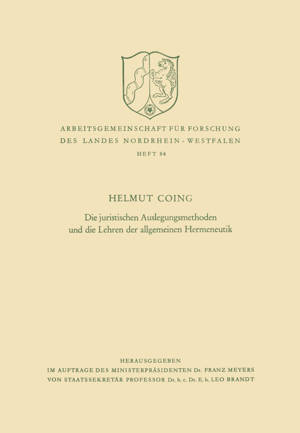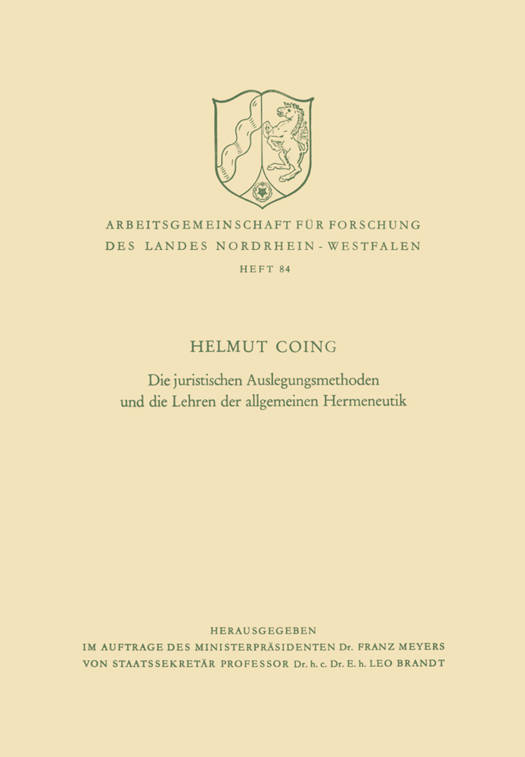
Door een staking bij bpost kan je online bestelling op dit moment iets langer onderweg zijn dan voorzien. Dringend iets nodig? Onze winkels ontvangen jou met open armen!
- Afhalen na 1 uur in een winkel met voorraad
- Gratis thuislevering in België vanaf € 30
- Ruim aanbod met 7 miljoen producten
Door een staking bij bpost kan je online bestelling op dit moment iets langer onderweg zijn dan voorzien. Dringend iets nodig? Onze winkels ontvangen jou met open armen!
- Afhalen na 1 uur in een winkel met voorraad
- Gratis thuislevering in België vanaf € 30
- Ruim aanbod met 7 miljoen producten
Zoeken
Die Juristischen Auslegungsmethoden Und Die Lehren Der Allgemeinen Hermeneutik
Helmut Coing
€ 54,45
+ 108 punten
Omschrijving
It is here examined to what extent the special rules of exegesis which have been developed in legal science conform to the general rules of hermeneutics, and how far the doctrines of legal exegesis can be attributed to these general doctrines. Firstly, a general view is given of the historical origin of the doctrines of legal exegesis (in antiquity philological-gram- matical exegesis, exegesis according to the sententia of the exponent, as well as according to the ratio legis; in modern times the systematic, historical and sociological method of exegesis) and the main principles of general hermeneutics are then developed. It can be shown that in fact the rules of legal exegesis are only appli- cations of general hermeneutical rules. From this conformity results the fact that, just as in general hermeneutics, so also in jurisprudence the various interpretative points of view must be applied side by side and, in accordance with a procedure that may be termed topical, one must be weighed against the other. Legal exegesis thus results not deductively but from a weighing of the various points of view one against the other. What is peculiar to legal exegesis as opposed to general exegesis consists nevertheless in the fact that legal exegesis must of necessity achieve a just and practicable result.
Specificaties
Betrokkenen
- Auteur(s):
- Uitgeverij:
Inhoud
- Aantal bladzijden:
- 58
- Taal:
- Duits
- Reeks:
- Reeksnummer:
- nr. 84
Eigenschappen
- Productcode (EAN):
- 9783322983015
- Verschijningsdatum:
- 1/01/1959
- Uitvoering:
- Paperback
- Formaat:
- Trade paperback (VS)
- Afmetingen:
- 170 mm x 244 mm
- Gewicht:
- 108 g

Alleen bij Standaard Boekhandel
+ 108 punten op je klantenkaart van Standaard Boekhandel
Beoordelingen
We publiceren alleen reviews die voldoen aan de voorwaarden voor reviews. Bekijk onze voorwaarden voor reviews.











